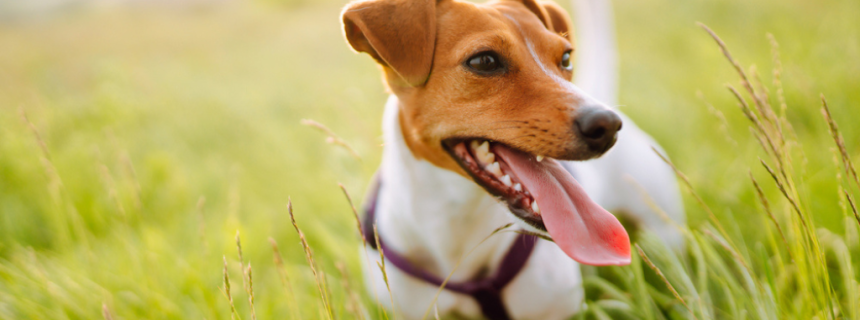This collection of [term:name] articles has been curated for you by Rau Animal Hospital. If you would like to talk to a veterinarian, please give us a call at 215-515-5542.
Fleas and Ticks: Protecting Your Pets and Home
As veterinarians, one of the most common concerns we hear from animal owners is how to protect their furry friends from fleas and ticks. These parasites not only cause discomfort and itching, but they can also transmit diseases and infest your home. Without proper treatment, they can make your four-legged family members (and other members of your family) downright miserable.
Read More
Spring Forward, Parasites Back: How to Prevent Dog Fleas and Ticks!
Ahhh, Spring. With the scent of flowers lingering in the air, the temperatures beginning to rise, and wildlife beginning to emerge from their winter dens, this season is full of promise. But you know what else spring is full of? Fleas and ticks. Just like everything else, fleas and ticks thrive in the warmer weather. The ideal temperature for these pesky parasites is about 70-85 degrees, although they can survive in cooler climates. For most states, flea and tick season runs from about May through September, so it’s best to get a handle on how to prepare now.
Read More
Does My Pet Need Year-Round Flea and Tick Prevention? Yes, and Here's Why!
The sun is starting to set earlier and earlier and the temperature is getting cooler. Some parts of the U.S. have begun to see blankets of snow that seemingly showed up overnight. Our minds have turned to thoughts of fireplaces and mugs of hot cocoa. We see our sleeping pets curled up and content on their bed when, all a sudden, their head pops up and they start to chew on their hip. “It can’t be a flea!” you think, noting the time of year and the chill in the air.
Read More
The Secret to Ridding Your Dog of Itchy and Irritated Skin
As humans, we know just how frustrating it is to have itchy skin so, when you see your dog struggling with it, your heart naturally goes out to them...for the first few weeks. By week three, you’ve had it and, if you sleep with your pet, you’ve lost more Zzzzzs than you care to think about. Now both you and your pet are at your wit’s end, which is no place to be. The best thing to do is to get to the root cause of the itch, so we’ve taken some time in this blog post to explore the many reasons your dog could be getting itchy skin, toes, or hot spots.
Read More
The Secret to Getting Fleas to Flee!
An unfortunate truth is that, in many parts of the United States, if you have pets, it is not a matter of if your pet has ever had fleas but when they will get them. At some time in your pet’s life, they are likely to get fleas. But just because it is common does not mean that it should be ignored. Just 1 female flea can lay as many as 40 to 50 eggs a day and over 2000 eggs in her lifetime. The longer you wait, the bigger the problems these minuscule pests can cause.
Read More
Taking Care of Your Dog’s Paws
Your four-legged friend’s feet play an important role in his daily life. They provide insulation to keep him warm in cold temperatures, contain sweat glands to cool him off in the heat, absorb shock, provide traction and balance, bear the majority of his weight, and allow him to run to greet you at the end of a long day.
Unfortunately, this means they also endure a lot of wear and tear. Watch out for these paw problems—and catch any issues early by regularly checking your dog’s digits.
Read More
The Favorite Hiding Places of Ticks
Ticks are the vampire of the pet world. They latch onto your dog or cat, attach themselves and suck their blood until they’re engorged with your pet’s blood. Then they fall off and rest until they’ve digested their meal.
What happens next is they may quietly die, or they may feel ready for another feeding. It depends on the life cycle of the tick, the type of tick, and other such factors.
Read More
Flea-Free: How to Control Parasites in Your Pet's Environment
Read More








